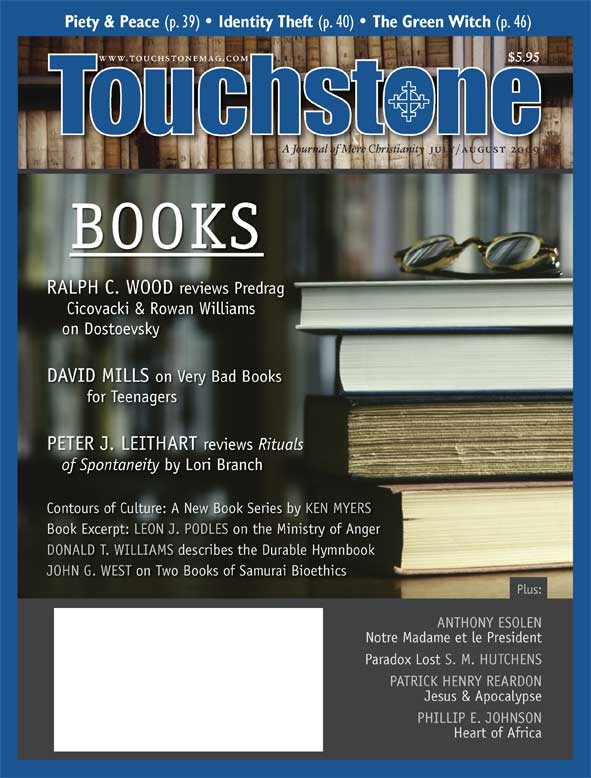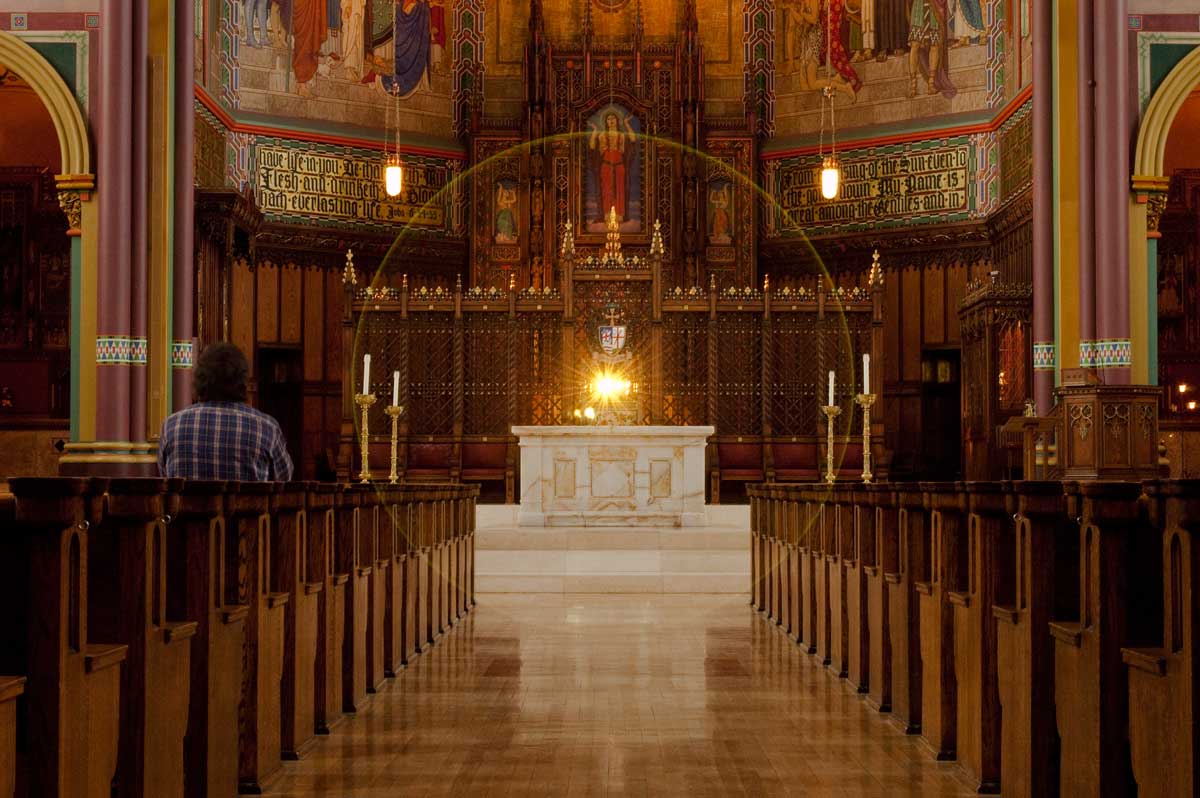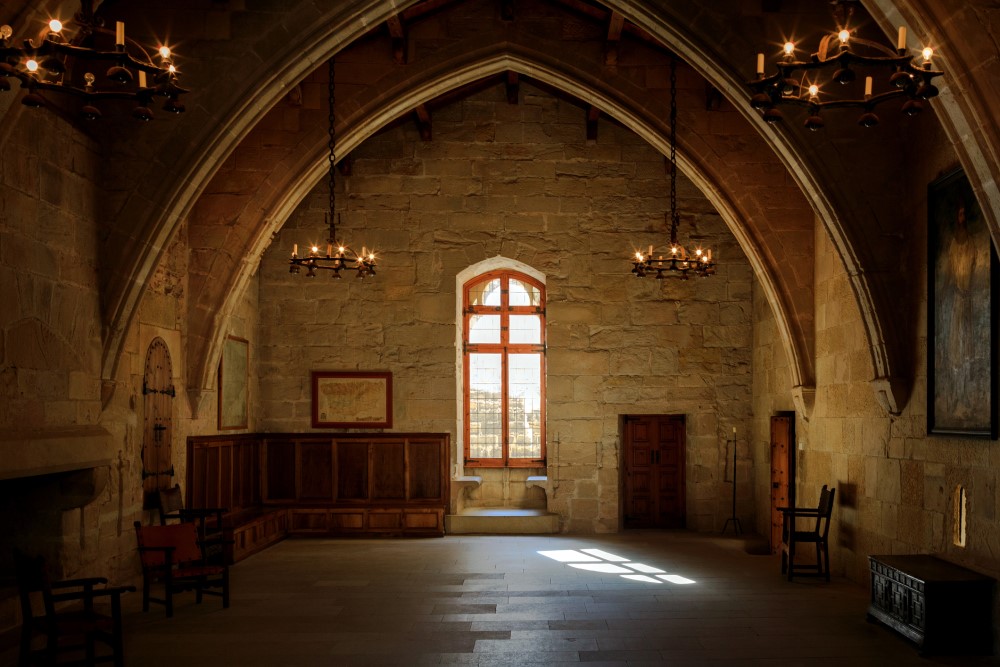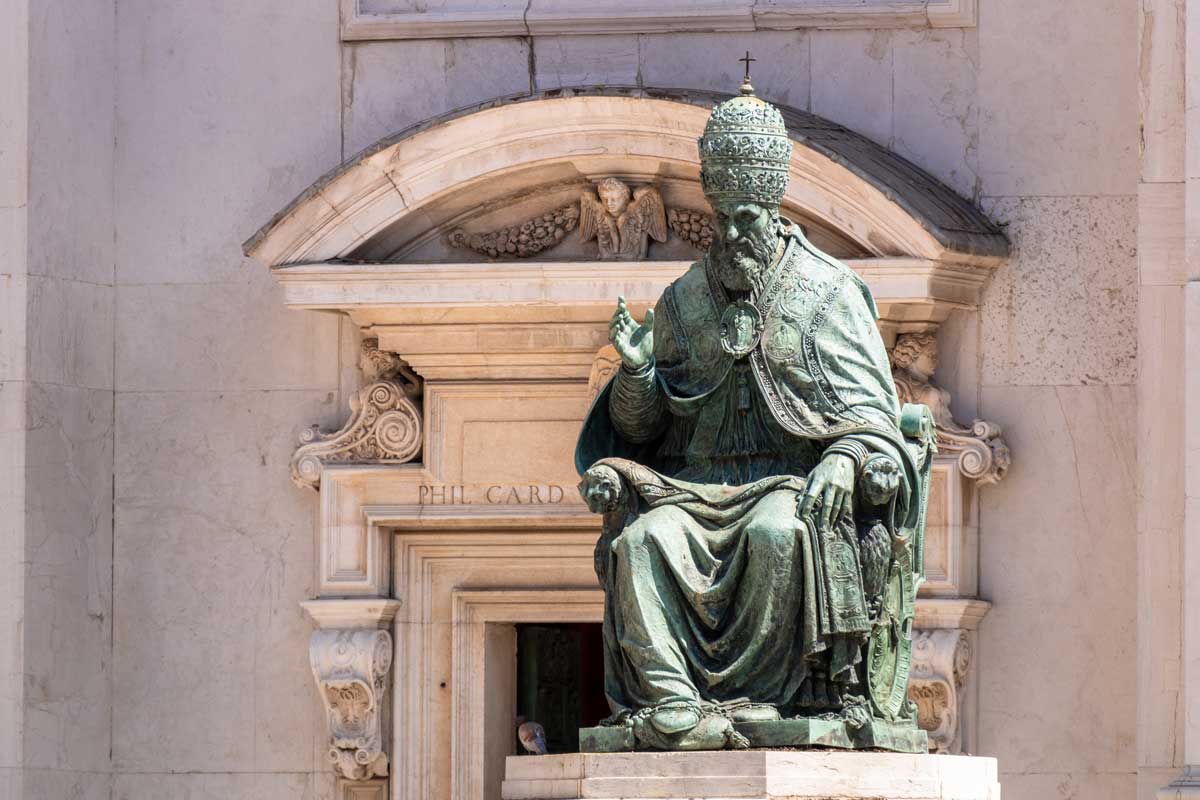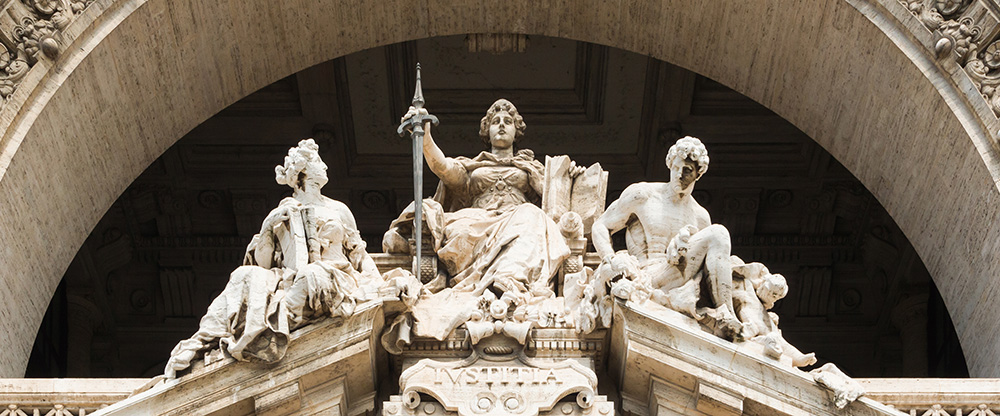Identity Theft
Being Catholic Now: ProminentAmericans Talk About Change In the Church and
the Quest for Meaning
by Kerry Kennedy
Canon Press, 2008
(288 pages, $24.95, hardcover)
reviewed by Christopher A. Castaldo
The Second Vatican Council declared, “Christ summons the Church to continual reformation as she sojourns here on earth.” This updating, or what the council called aggiornamento, occurs naturally with each successive generation, as the church considers what it means to be Catholic now.
Such is the allegation of Kerry Kennedy’s book, Being Catholic Now. She and 37 contributors, most of them celebrities, speak about change in the church, their background in Catholicism, and their personal quest for meaning. Together, their essays purport to redefine the ancient institution of Catholicism “in the most contemporary of terms.” Even without cracking the book open, one can get a sense of what those “contemporary terms” are by reading through the names highlighted on the cover: Anna Quindlen, Susan Sarandon, Andrew Sullivan, Martin Sheen, and E. J. Dionne, Jr., among others.
But Being Catholic Now also contains a few devout voices. There is, for instance, Theodore Cardinal McCarrick, who asserts, “What the Church needs today is faith,” which he defines as heartfelt repentance and belief centered on the Lord. There’s also Peggy Noonan’s contribution, which describes her spiritual renaissance at age 40, when she started studying the Bible. Reflecting on how her empty heart was filled with meaning, she says, “It was a great experience for me to be brought back to Christ by Protestants. It gave me an admiration for them and their lovely personal relationship with Christ.”
Also included are several contributors who speak candidly of having been sexually abused by the clergy during childhood. These stories elicit compassion for the victims and provoke anger toward their perpetrators.
Equally disturbing are the accounts of those who have lost faith entirely, which, despite the words being and now in the title, Kennedy also included in her book. Author Frank McCourt confesses, “Now I believe that when you die there’s nothing—oblivion and memories. . . . I admire people who have faith in God. It must be a great comfort to them, but I had to get out from under the fear and the guilt.” Anyone who has read McCourt’s autobiography, Angela’s Ashes, or seen the movie by the same title, will turn these pages with a measure of sorrow.
Bill Maher’s vituperative screed, on the other hand, is downright blasphemous:
I hate religion. It’s the worst thing in the world. . . . [Christianity’s] primary focus is your own salvation through Jesus Christ. . . . You have to believe that this person was the son of God, came down here on a suicide mission, and then flew bodily back up to heaven where he rejoined his father who’s also him. OK. I respect people as human beings. I don’t wish them harm, but people who believe that can’t have my intellectual respect.
Yet, ironically, Maher’s contribution conveys more theological content in this statement than do most of the others, even if it’s an anti-Christian rant.
A Leftist Concoction
That may be because most of those other contributors appear more interested in presenting a left-liberal political platform disguised in Catholic garb than in discussing the doctrines of the faith. Unsurprisingly, this often involves arguing for the “pro-choice” position on abortion. So, for example Donna Brazile asserts: “As the result of being a descendant of slaves, where my ancestors had no control over their reproductive health or even access to age-appropriate reproductive health information, I believe it’s essential for women to have a choice.” No better is the apologetic tactic of Nancy Pelosi: “I’ve always been pro-choice. To me, it’s like saying, ‘Should we surrender our brains?’” These and other such arguments make one think of the old preacher who wrote in the margin of his sermon notes, “Weak point; pound the pulpit and shout.”
Most of the contributors to Being Catholic Now share an essential flaw: their penchant for defining Catholic faith in subjective terms without regard for the tenets of Christian orthodoxy. With few exceptions, they either ignore or revise the objective truth claims of historic Christianity—basic concepts like creation, fall, redemption, and kingdom. For example, Kennedy says of her childhood catechism, “Now all that packaging has been subjected to criticism and found wanting.”
The cumulative result is a leftist concoction of Christianity bereft of the crucified and risen Savior, making the book a Catholic correlative to mainline Protestant liberalism. Kennedy’s own words sum up the prevailing viewpoint: “Catholicism, in the end, is about creating a society based on shared vision of God as exemplified by Christ, his commitment to justice and peace, and, most of all, his love.”
But despite its subjectivity and liberalism, Being Catholic Now may serve one good end: to remind us that success in aggiornamento cannot be achieved without what Catholic theologians call ressourcement: a return to the biblical, patristic, and high-medieval sources of faith. Perhaps if more of the contributors to Being Catholic Now sought deeper faith in the person of Christ, they would find greater and more satisfactory meaning in “being Catholic now.”
subscription options
Order
Print/Online Subscription

Get six issues (one year) of Touchstone PLUS full online access including pdf downloads for only $39.95. That's only $3.34 per month!
Order
Online Only
Subscription

Get a one-year full-access subscription to the Touchstone online archives for only $19.95. That's only $1.66 per month!
bulk subscriptions
Order Touchstone subscriptions in bulk and save $10 per sub! Each subscription includes 6 issues of Touchstone plus full online access to touchstonemag.com—including archives, videos, and pdf downloads of recent issues for only $29.95 each! Great for churches or study groups.
Transactions will be processed on a secure server.
more on Catholic from the online archives
more from the online archives
calling all readers
Please Donate
"There are magazines worth reading but few worth saving . . . Touchstone is just such a magazine."
—Alice von Hildebrand
"Here we do not concede one square millimeter of territory to falsehood, folly, contemporary sentimentality, or fashion. We speak the truth, and let God be our judge. . . . Touchstone is the one committedly Christian conservative journal."
—Anthony Esolen, Touchstone senior editor





